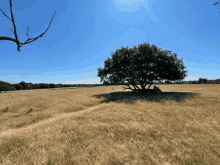African literature, except for the obvious exceptions to this rule, is mostly out of the limelight or only in it for a short amount of time. The stories that encapsulate this genre tell unique stories about the continent, its history and culture.
Stories that don’t fit the stereotypes and misconceptions pushed by the Western media, stories that break ground in narrating our nuanced experiences overshadowed by said stereotypes. It is important these stories are the ones people, including Africans, should see representing their lives, and for non-Africans, these stories can act as a cultural bridge to understanding new perspectives different to yours. With that, here are some African stories (both fiction and nonfiction), to satisfy your niche this summer:
Let us slide into your dms 🥰
Get notified of top trending articles like this one every week! (we won't spam you)1. The Five Sorrowful Mysteries of Andy Africa by Stephen Buoro
The first book to make this list is one I felt quite conflicted about reading. The Five Sorrowful Mysteries of Andy Africa is a tragicomic coming-of-age story, centered around…well…a black boy that loves white girls.
This book has been quite divisive, for some being a darkly humorous and enjoyable perspective, while some may gnash their teeth in annoyance while reading. And that was me for a while. The book centers around the story of 15 year old Andrew Aziza, nicknamed Andy Africa by a teacher for his anti-Africa rhetoric. He lives in Kontagora, Rivers State in Nigeria, a place that, like many parts of Nigeria, is ridden with corruption and insecurity. Andy has a fetish- for blonde white girls. And he makes that pretty clear as he declares: “A fifteen-year-old African genius poet altar boy who loves blondes is not a criminal, not a racist, not a sell-out”. The book, however, does not focus solely on his fetish or the rampant danger around him, but delves into the simple act of growing up, learning and existing as a young adult in general. This is refreshing to see, as most commonly, what is portrayed about places like Nigeria online is mainly violence and danger. While insecurity is a part of Andy’s life, it is not the only thing in his life. To the relief of some readers, he ends up falling for his neighbor, Fatima, instead of the new white girl Eileen, who is portrayed in the book as condescending and slightly obliviously racist. Overall, a wonderful, insightful read. 
Source: Bloomsbury U.K.

Take the Quiz: Which Harry Potter Character Are You?
Find out which character matches your personality!
2. Purple Hibiscus by Chimamanda Adichie
Adichie’s debut novel, even though it has not received the fame and press of its successors, is still a beautiful piece of fiction. The coming-of-age novel centers around Kambili Achike, a very quiet and introverted fifteen-year-old living in luxury in Enugu, Nigeria in the 80s and 90s.
The story, told from the first person, narrates the abuse she, her brother Jaja, and her mother Beatrice, endure at the hands of her father, Eugene. Even though Eugene presents himself as a loving husband and father on the outside, inside the high walls of his compound, he is a tyrant. Demanding absolute perfection from his children and punishing them when they don’t meet his impossible standards, Kambili longs to break free. The opportunity to do so presents itself as she gets to spend more time and live with her Aunty Ifeoma, Eugene’s sister and a stark contrast to her brother. Aside from the abuse, there are many other plots interwoven, including the relationship between Eugene and his family (his sister and father), democracy, military dictatorships, censorship, love, and learning to speak up. Filled with plot twists and interesting character development, Purple Hibiscus is nothing short of a fantastic read. 
Source: Goodreads
3. Unbowed: A Memoir by Wangari Maathai
This is a memoir written by renowned Kenyan Nobel Prize winning environmental activist, Wangari Maathai. It details her experiences from childhood in rural Kenya, how she got in touch with nature at a young age and learned to appreciate the environment.
She also talks about the Green Belt Movement, an organization focused on women’s rights and environmental conservation , which she started in Kenya and grew up in other parts of Africa. Aside from her history of environmental activism (fighting against land grabbing, deforestation and fighting for sustainability in infrastructure projects), she also had her roots in political activism, detailing how she fought against the regime of Daniel arap Moi, who was known for his autocratic tendencies. In 2004, Maathai became the first African woman to win the Nobel Peace Prize, and in this book, discusses what this meant to her and her country. For anyone, from environmentalists in the making to someone with a curiosity, this memoir serves as a beautiful, courageous tale and read. 
Source: Penguin Random House Australia
4. Houseboy by Ferdinand Oyono
This classic of African fiction was written by Cameroonian author Ferdinand Oyono in 1956. This was about four years before Cameroon’s independence from the French on New Years’ Day 1960, so you could say the book was perfectly timed based on its content and theme.
It is told in a diary format, and gives a fictional account of the life of Toundi Ondua, who was a houseboy for a French colonial officer in Cameroon at the time. The book tells a harrowing tale, through Toundi, about the effects of colonization in relation to concepts such as power dynamics, cultural clashes and racial discrimination. Toundi’s desire for education and enlightenment exposed him to the privileges and drawbacks of his colonial society. He witnesses and experiences firsthand the exploitation and abuse laid onto his people, and the injustices rooted in colonial Cameroon. Though it is vivid in its portrayal of Toundi’s experiences, the book highlights the painful treatment suffered by people during colonial rule, and asks pertinent questions about power, independence and resistance. In all, Houseboy should be something you add to your Amazon wish list. 
Source: Goodreads
5. Nervous Conditions by Tsitsi Dangarembga
This first book of a trilogy was authored by Zimbabwean author Tsitsi Dangarembga in 1988. This semi-autobiographical novel focuses on the life of Tambudzai and her family in post-colonial Rhodesia (modern day Zimbabwe) in the 1960s and 1970s.
The book explores the themes of post-colonialism, gender, grief and identity. Tambudzai, in the story, desires an education as a means of escaping the limits of her patriarchal society. The opportunity to do this as her uncle, Babamukuru, invites her to join his mission school, to which she agrees and passes the exam for. Upon joining this school, she realizes that education does not equal liberation and faces many challenges along the way, including the oppressive expectations of being a woman in this society at the time, the long-lasting effects of colonialism and the clash between her traditional and Western values. This book gives much needed insights into the effects of colonialism on African countries, using Zimbabwe as a sort of case study. I recommend it to anyone as it is a fantastic piece of prose that leaves a long-lasting effect emotionally.

6. Long Walk to Freedom by Nelson Mandela
You may not know the book, but you know the man behind the book. Nelson Mandela’s autobiography serves as not only a captivating account of his life, but the South African anti-apartheid movement.
He recounts various points in his life, from his traditional upbringing and exposure to racial injustices, to delving into his political involvement in the African National Congress (ANC) and his non-violent revolution. The book, though nonfiction, has an element to it that feels very unreal, and reads more like a fictional narrative. Mandela also shares some reflections and insights from his 27 years spent in prison on Robben Island. The book also demonstrates how the South African activist pursued personal growth aside from real world change, and this personal touch makes the book nothing short of a wonderfully-woven piece of narrative and nonfiction. It is definitely worth reading.

Overall, African literature is composed of gems that often go unnoticed in our society today. They tell stories that overshadow the stereotypes about the continent and its culture, while offering bewitching uses of elements of fiction and nonfiction. While this list here is just a few of the many more out there, the books on this list should be a definite read to diversify your reading list.














.jpg)
